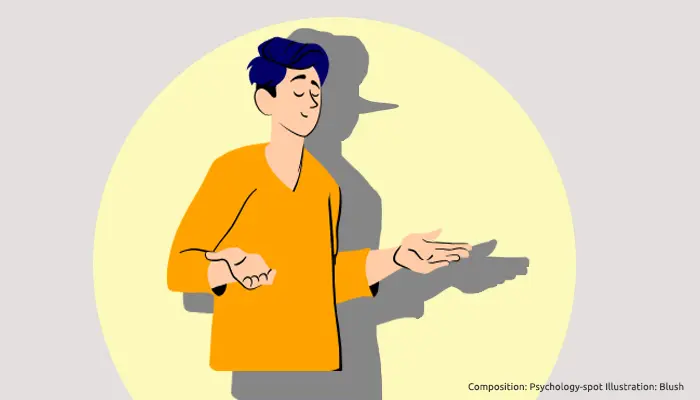
They say that “A lie repeated a thousand times becomes the truth”. This phrase, attributed to Joseph Goebbels, the head of Nazi propaganda (but he probably nevere said that), has become one of the laws of advertising and, although it has its nuances, psychological science has shown that it is not so wrong.
Also Aldous Huxley in his book “Brave New World” said that “62,400 repetitions make one truth”. In the work, certain affirmations were repeated to people while they slept to introduce those beliefs into their minds, so that they would remain permanently ingrained and become unquestionable dogmas.
In these times, in which the spreading of erroneous or biased information is the order of the day and it is increasingly difficult to discern the data from propaganda or manipulation, it is important to know the traps that our mind sometimes sets for us.
A lie repeated a thousand times becomes – almost – the truth
Most people gullibly shape their beliefs about the world, are swayed by weak arguments, and don’t dismiss irrelevant information. Repetition is one of the ways of influencing those beliefs. In fact, in psychology there is what is known as the “repetition-induced truth effect”.
The illusory truth effect, as it is also known, refers to the fact that the repetition of information increases its subjective truth; that is, we are more likely to believe that it is true. Just as we don’t buy many copies of a newspaper to make sure what it says is true, there is no logical reason to think that repetition affects truth. However, human beings do not always think logically.
Until recently, it was thought that we could only believe right away in false statements about which we knew practically nothing, such as a concept from Quantum Physics or an alleged finding from Paleoecology. However, new research conducted at the Catholic University of Leuven suggested that the repetition-induced truth effect goes one step further by making truly outlandish and implausible claims seem more true, even though they directly contradict our knowledge.
These researchers showed the more than 200 participants various repetitions of false statements. In the first phase, they were presented with 8 of 16 statements that other people had rated as highly implausible. These included statements such as “elephants weigh less than ants”, “the Earth is a perfect square”, “elephants run faster than cheetahs” and “smoking is good for the lungs”, as well as more plausible claims.
People had to rate how true they considered those 8 statements and then they were presented them again randomly mixed with others, until reaching five repetitions each.
They were then randomly shown the 16 statements again, eight of which they had seen repeatedly in the previous phase while the other eight were new. In this case, they had to re-indicate how much truth each statement contained on a scale of -50 for “definitely false” to +50 for “definitely true”.
The researchers found that repetition of implausible statements influenced truth ratings. Overall, 53% of people perceived the statements they had seen repeatedly as less false than the new claims. Only 28% of participants had the opposite effect; that is, the more they were exposed to such claims, the more implausible and false they found them.
These results show that a surprisingly low number of repetitions (as few as five) can affect our perception of the truth by making that highly implausible statements seem more plausible to us. It is not that we believe that “the Earth is a perfect square” – although there are already some who believe it – but that we become familiar with the idea and it seems less and less crazy to us.
Nowadays, subjected to a constant bombardment of news, at the mercy of social media algorithms that always show us the same information creating personalized echo chambers, it is not difficult to understand why the world is so polarized and is more difficult to find common points that open the doors to dialogue: everyone believes in their truth and is not willing to contemplate other points of view.
What causes the illusory truth effect induced by repetition?
The illusory truth effect is due to a trap in our brain. In fact, we must take into account that our brain tends to economy of resources; I mean, it’s lazy. Therefore, the repetition-induced truth effect is largely due to “processing fluency”; that is, repetition makes information easier to process cognitively, a facility that we often misinterpret as a sign that it is true.
In practice, when something makes “resonance within us”, we tend to be less critical, give it more importance and think that it is more credible than new ideas. Repetition offers the plus of familiarization while new statements demand a greater cognitive effort. As a result, we will have a tendency to lower our guard and accept them. It is simply a way to optimize our time and resources.
Of course, we are not mere receptacles of information, we have the power to reject irrational ideas, fallacious reasoning and erroneous beliefs. We can prevent our minds from getting caught up in the illusory truth effect by analyzing the degree of logic contained in the ideas we hear. We need to continually check what we believe and not believe it just because we have heard it a thousand times. A lie does not become true because it is repeated a thousand times, but sometimes it is enough to be convinced of it. Being aware that we are manipulable is the first step to stop being so.
Source:
Lacassagne, D. et. Al. (2022) Is Earth a perfect square? Repetition increases the perceived truth of highly implausible statements. Cognition; 223: 105052.



